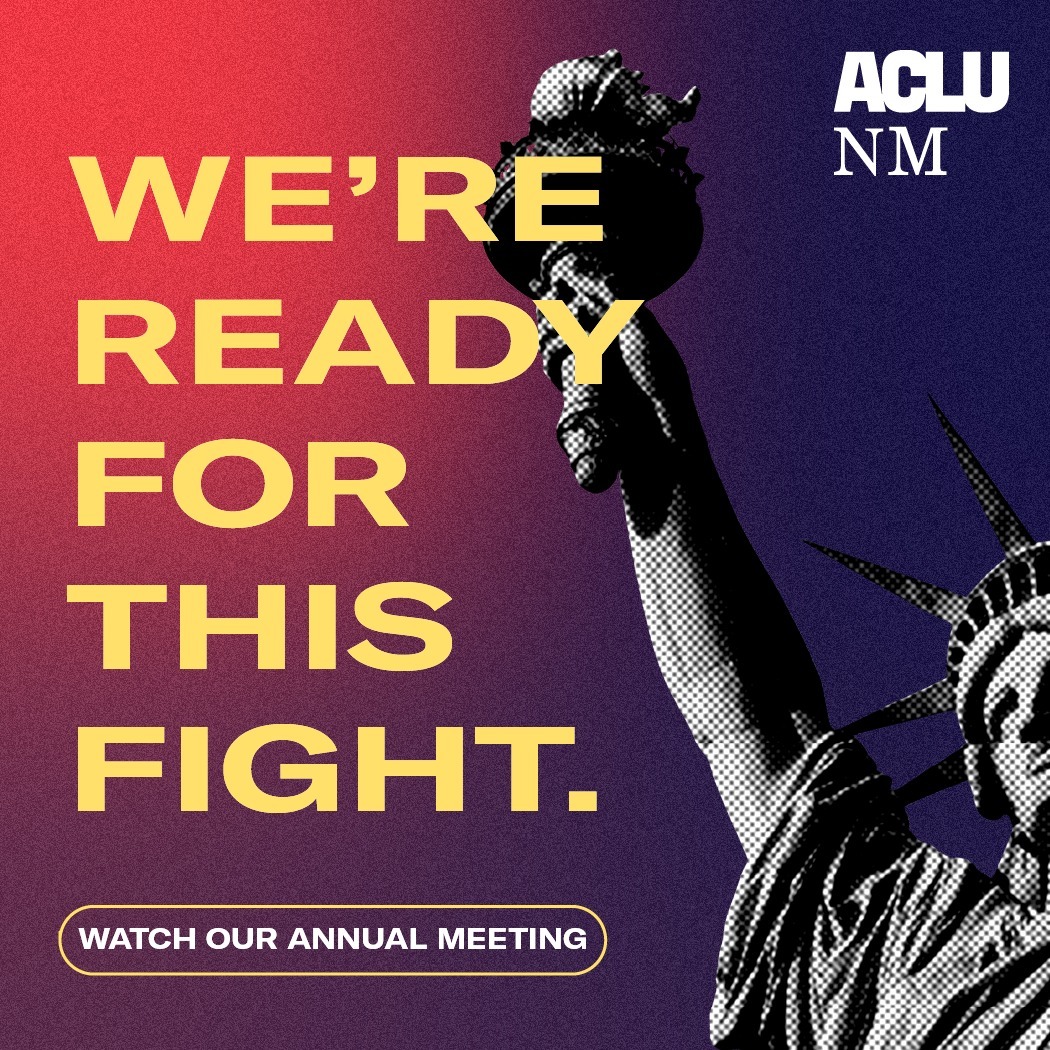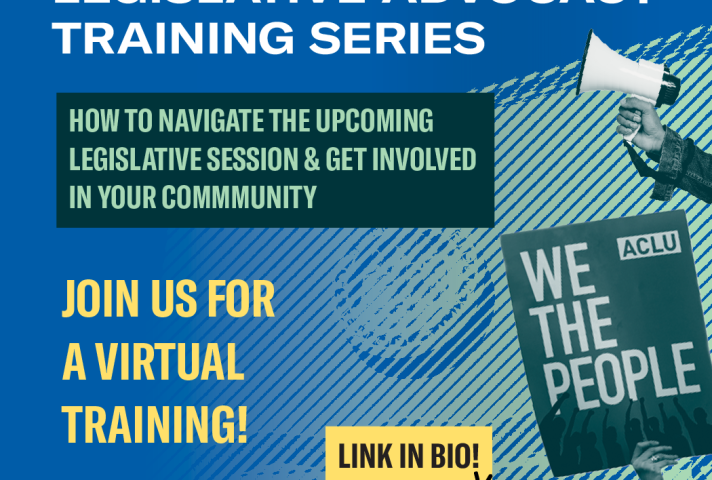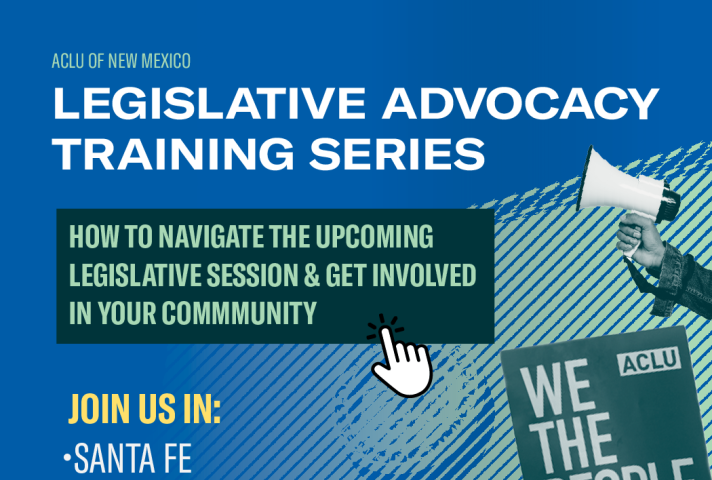This year's legislative session will bring urgent needs to protect the rights and freedoms of New Mexicans. With the 2025 session set to begin on January 21, 2025, the time is now to prepare for the upcoming session.
Join us to explore powerful strategies for championing legislation that defends and advances our rights, all while working to block harmful bills that could impact our communities. Discover how to connect with fellow ACLU activists, engage directly with lawmakers on essential legislation for the upcoming session, and participate in focused discussions on the issues that matter most to you with our expert policy team.


